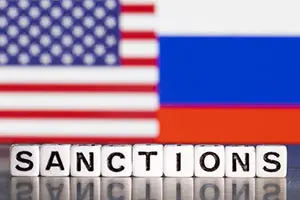PHOTO
The United States and its allies will impose new sanctions this week to crack down on Russia's efforts to evade sanctions and export controls aimed at forcing Moscow to end its war in Ukraine, Deputy Treasury Secretary Wally Adeyemo said on Tuesday.
Adeyemo said a coalition of more than 30 countries would crack down on Russia's purchases of dual-use goods like refrigerators to secure semiconductors needed for its military. The sanctions would also seek to do more to stem the transshipment of oil and other restricted goods through bordering countries, although he did not give details.
Officials would also warn companies and individuals still doing business with Russia that they faced sanctions if they continued doing so.
"The breadth of this coalition is what will enable us to continue to isolate Russia," Adeyemo will say in a speech to be delivered at the Council on Foreign Relations on Tuesday, ahead of Friday's one-year anniversary of Russia's invasion.
"We will force those that fail to implement our sanctions and export controls to choose between their economic ties with our coalition of countries - representing more than half of the world’s GDP - or providing material support to Russia, an economy that is becoming more isolated every day."
The goal, Adeyemo said, was to keep raising the cost to Russia of evading sanctions and trying to get around an oil price cap imposed by the Group of Seven rich nations and Australia by creating its own alternative ecosystem to sell oil.
Russia had already been forced to divert billions in funds from the war to pay for insurance, shippping and other services, and Washington would seek "additional ways to drive up" those costs, he said, without elaborating.
Echoing remarks made in an interview with Reuters last week, Adeyemo said U.S. and allied officials would warn companies and financial institutions in their own countries - and India and China - against evading sanctions imposed on Russia.
They were also providing "actionable" intelligence to countries, including several of Russia’s neighbors, to enable them to stamp out sanctions evasion. If they failed to act, he said, "we and our partners are prepared to use the various economic tools at our disposal to act on our own."
U.S. and coalition officials would warn companies and banks in these countries that they faced being cut off from Western markets and financial systems if they did not enforce sanctions.
Adeyemo acknowledged that Russia's economic data appeared better than expected at the start of the war, but said Western sanctions were forcing the Kremlin to use limited resources to prop up its economy. "One year into this conflict, Russia's economy looks more like Iran and Venezuela's than a member of the (Group of 20 major economies)," he said in the prepared remarks.
Adeyemo said Washington was concerned about deepening ties between Russia and China, but Beijing could not provide Moscow with advanced semiconductors it needed to replace military equipment lost since the start of the war. (Reporting by Andrea Shalal; Editing by Ross Colvin and Simon Cameron-Moore)





















